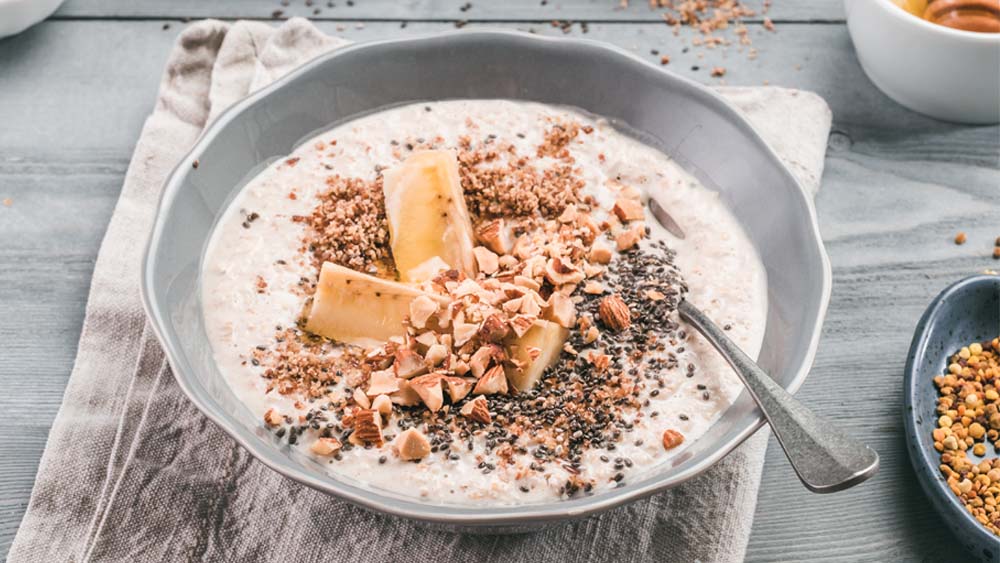Breakfast is often pushed as the most important meal of the day, yet many of us miss the mark when it comes to its nutritional value. For the sake of convenience, it’s all too easy to reach for a slice of toast, a croissant, or a sugary cereal. While these options might be quick and delicious, they typically lack a crucial component for sustained energy and health—protein. Without sufficient protein in the morning, you may find yourself on a rollercoaster of blood sugar spikes and crashes, which can leave you feeling tired, irritable, and craving unhealthy snacks by mid-morning.
Why Protein is Essential in the Morning
Protein is more than just a macronutrient; it's a key player in your body's daily function. When you include adequate protein in your breakfast, you set a solid foundation for the day ahead. Here’s why starting your day with protein is so important:
- Appetite Control: Protein has been shown to increase feelings of fullness more than carbohydrates or fats. By incorporating protein into your breakfast, you're more likely to feel satisfied and less prone to mindless snacking before lunchtime.
- Steady Energy Levels: Unlike carbohydrates, which can cause rapid spikes and drops in blood sugar, protein provides a steady release of energy. This can help maintain your mood and concentration, making you more productive throughout the day.
- Muscle Health and Metabolism: Protein is crucial for muscle repair and growth, and it can also boost your metabolism. By including protein in your morning meal, you support muscle maintenance and a healthy metabolic rate.
How Much Protein Do You Need?
While protein needs can vary depending on individual factors like age, weight, and activity level, a general guideline is to aim for at least 15-20 grams of protein at breakfast. This amount can help you feel full and energised throughout the morning.
Easy Ways to Boost Your Morning Protein
If you’re looking to transform your breakfast into a protein-packed meal, here are some simple and delicious ideas:
- Add Protein Powder: One of the easiest ways to increase your protein intake is by adding a scoop of protein powder to your morning smoothie, oatmeal, or yoghurt. It mixes effortlessly and can come in various flavours, making it a versatile addition to many breakfast options.
- Eggs: Eggs are a powerhouse of nutrition and one of the best sources of high-quality protein. Whether you prefer them scrambled, boiled, poached, or in an omelette, eggs are a versatile breakfast option that can keep you full for hours. For an extra protein boost, add vegetables and cheese to your omelette.
- Greek Yoghurt: Greek yoghurt is a protein-rich alternative to regular yoghurt, offering nearly double the protein content. Pair it with fresh fruits, nuts, or a sprinkle of granola for a nutritious and satisfying breakfast.
- Nut Butters: Spread almond butter or peanut butter on whole-grain toast, mix it into your oatmeal, or add a spoonful to your smoothie. Nut butters are not only rich in protein but also provide healthy fats that help keep you full.
- Chia Seeds: These tiny seeds are a nutritional powerhouse, packed with protein, fibre, and omega-3 fatty acids. Add chia seeds to your smoothie, sprinkle them over yoghurt, or mix them into your oatmeal. You can even make a chia seed pudding by soaking them overnight in milk.
- Cottage Cheese: Cottage cheese is an often-overlooked source of protein. Enjoy it on its own, mix it with fruits like berries or pineapple, or spread it on whole-grain toast. It’s a delicious way to start your day with a protein boost.
- Quinoa Breakfast Bowls: If you’re looking for something different, try a warm quinoa breakfast bowl. Quinoa is not just for lunch or dinner; it’s also a great source of plant-based protein. Cook it with milk, add a drizzle of honey, and top with nuts and fruits for a hearty breakfast.
Additional Tips for a Protein-Packed Breakfast
- Combine Protein Sources: You don't have to stick to just one source of protein. Combine eggs with Greek yoghurt, or add nuts to your protein shake for a more balanced meal.
- Prepare in Advance: Mornings can be rushed, so prepare protein-rich breakfasts in advance. Overnight oats with protein powder, make-ahead egg muffins, or yoghurt parfaits are convenient options.
- Watch Portion Sizes: While adding protein to your breakfast is crucial, be mindful of portion sizes. For example, nut butters are nutritious but also high in calories, so stick to a recommended serving size.
Why You Should Avoid High-Sugar Breakfasts
Sugary cereals, pastries, and other refined carbohydrates may give you a quick energy boost, but this is usually followed by a crash. High-sugar breakfasts can cause a spike in insulin levels, leading to increased hunger and cravings shortly after eating. By focusing on protein, you help stabilise your blood sugar levels, keeping those energy dips and cravings at bay.
Don’t let breakfast be a missed opportunity for nutrition. Starting your day with a protein-rich meal can stabilise your blood sugar, keep your energy levels steady, and help curb cravings. Whether you choose eggs, Greek yoghurt, or a scoop of protein powder in your smoothie, these simple additions can make a big difference. So, next time you're planning your breakfast, think protein. Your body—and your mood—will thank you.

